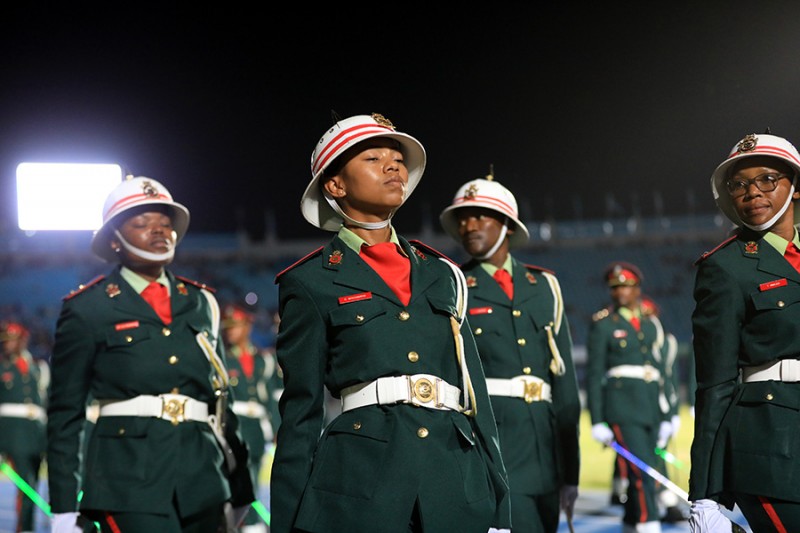Women in the force join forces against GBV
Lesedi Mkhutshwa | Tuesday December 10, 2019 12:25


This was one of the resolutions, which was raised by the Northern Division Headquarters Police, Assistant Superintendent Kedibonye Kula during her deliberations after the two-day women in service symposium, which was held at Adansonia Hotel.
The symposium, which was one of a kind, has attracted over hundred women in the force and health workers from across the country with the view of discussing issues relating to GBV together with how to handle and manage GBV cases through a multidisciplinary approach.
In her address during the resolution and best practices to fight against GBV Kula said that in most occasions GBV victims suffer because of insufficient collaborations between relevant stakeholders such as health workers, social workers and the police.
“For instance some of the GBV cases go unresolved because some experts such as social workers might have not being included in proper assessments with the victim hence leaving some loopholes in the case. Such incidences can be avoided if the right experts are engaged in the matter for proper flow of the case hence giving the Directorate of Public Protector (DPP) a solid evidence against the defense attorney in court.”
Kula added that such experts should carry out assessments since they are the ones who know best how to address GBV and how to interview the victims properly without intimidating them.
She also said that if they follow that procedure most of the GBV victims would feel free and be open about their experiences so that the perpetrator can be punished accordingly.
She stated that evidence assessment and evaluation is very critical as it can be cost effective and can improve turn around times in the delivery of services.
She therefore said there is a need for GBV focal people under the police service to be deployed accordingly so that they use their skills when handling cases of GBV.
Kula added that there is also a need to have one-stop services for the victims of GBV so that they do not feel humiliated in the process of getting justice.
Kula said that they have through the conference resolved that women in services as victim of GBV should utilize the psychological and social facilities within their structure networks.
She also said that they could also make use of each other’s structures when they are not comfortable in their workplace enviroment so as to reduce the fear of being stigmatized after reporting any sort of abuse.
She added: “Having realised and recognised the pressures that women in the force face due to peculiarities of the profession. There is a need for coaching and nurturing young women before being deployed.”
On another note, Kula spoke against the tendency of the pull down syndrome by some women against one another in the workplace enviroment indicating that women should be each other’s support.
